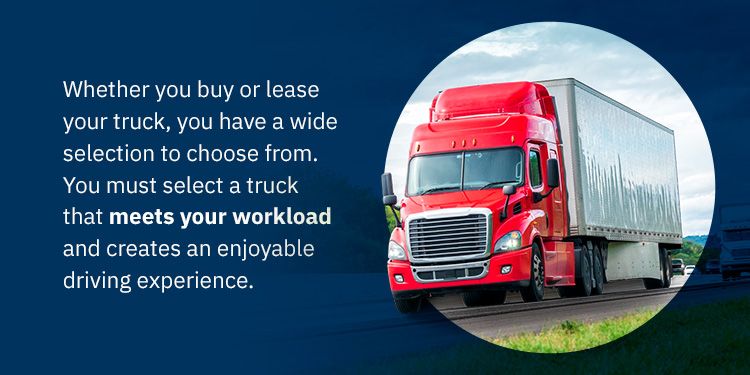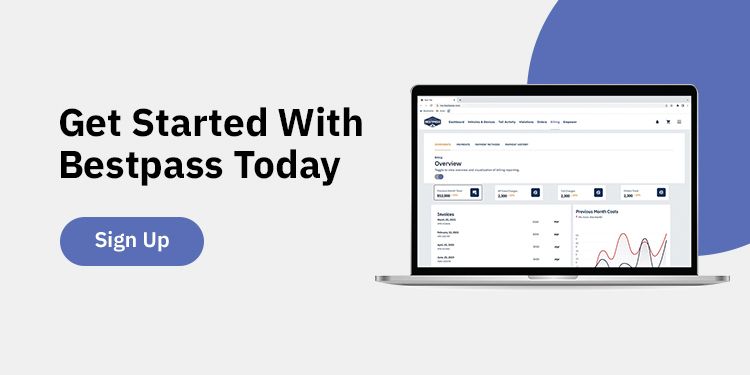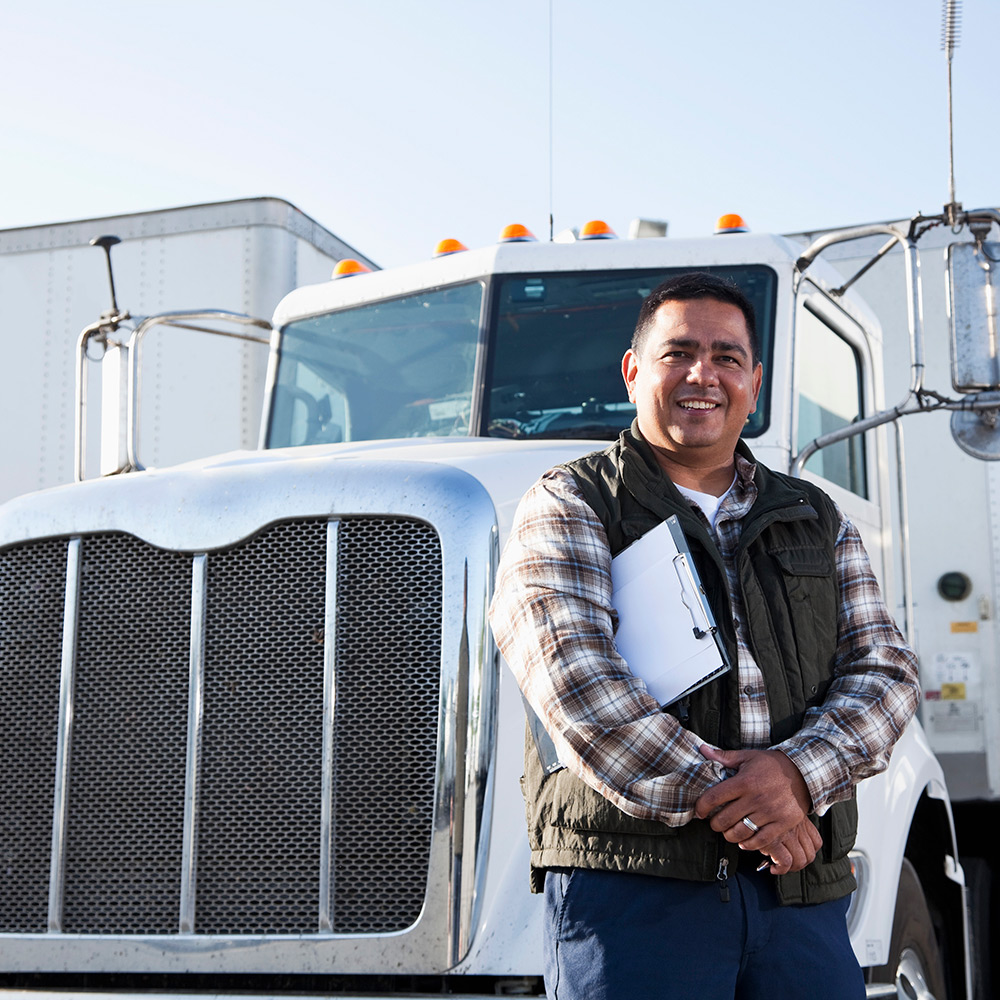
Tips for Purchasing Trucks as an Owner-Operator
Owner-operators are self-employed truck drivers who manage their business operations. They work with multiple clients instead of individual companies, selecting personal work schedules. Owner-operators are responsible for establishing and running their truck business, from finding work to managing finances.
Another essential responsibility for owner-operators is purchasing their trucks. Unlike truck drivers working for larger fleets, owner-operators must buy trucks and cover all overhead and maintenance costs. The process of buying your first semi-truck might seem confusing or complicated.
Learn more about how to buy your own truck and how Bestpass can help.
How to Buy Your Own Semi-Truck
Owner-operators have two pathways to obtain a truck — buying or leasing. Learning more about these choices helps you make the best decision for your needs. Each option has distinctive pros and cons that can make it more or less suitable for owner-operators.
Purchasing a Truck
Owner-operators can buy a truck to finalize the investment for their business. Semi-truck costs vary by size, model, age and other factors. The price can range between $70,000 to $200,000, depending on the vehicle type and specifications.
Most owner-operators use financing plans to purchase their trucks. Financing allows you to take out a loan to cover the truck cost, then pay it off in specified monthly payments. You can work with truck sellers to find a payment plan and interest rate that works with your budget.
In addition, owner-operators can choose between different truck conditions.
- New: New trucks are in optimal condition and have warranties that protect your purchase. Many owner-operators prefer buying new vehicles to ensure they perform at their best. However, newer models are typically more expensive. Owner-operators need sufficient savings to buy a truck, covering the down payment and other financing fees.
- Used: Used trucks offer more affordable prices for owner-operators. They have lower upfront and monthly costs, making the expenses more manageable. Because of their age, used trucks might need more repairs and maintenance over time. They also might not come with a warranty.
Is Buying an 18-Wheeler a Good Investment?
Buying an 18-wheeler or other truck type is a good investment for owner-operators. After paying the truck off, you gain complete ownership of the vehicle. Your purchase allows for more flexibility in the long term. Once the truck is yours, you can modify and use it according to your needs. However, a significant truck investment isn't possible for some drivers. Some owner-operators might need more funds for the purchase.
Leasing a Truck
Another option is leasing a truck. Leases are long-term agreements allowing owner-operators to use commercial trucks for a specified time. You cover monthly payments during your contract, then return the truck once the contract ends.
Leases offer multiple benefits for owner-operators.
- More manageable costs: Leases are a cost-effective way to operate commercial trucks. You avoid upfront expenses and work with the lender to find a monthly lease cost that aligns with your budget. Some lenders include maintenance or repair costs in the lease terms, minimizing the burden on owner-operators. This strategy has significant benefits — you could start your business immediately instead of saving for a truck investment.
- Increased flexibility: Leases are also a flexible choice for owner-operators. Instead of committing to a long-term investment, leases let you use a truck for a few months or years. You can try being an owner-operator and test how it suits your finances and work preferences. If you decide to stop, you can return the truck at the lease's end. Many lease contracts also allow you to buy the truck once the lease completes.
Leases also have a few disadvantages. Some contracts only let you drive a certain number of miles, which restricts the amount of work you can complete. If you violate the contract, you could face additional penalties.

How to Choose the Best Option for Your Needs
Whether you buy or lease your truck, you have a wide selection to choose from. You must select a truck that meets your workload and creates an enjoyable driving experience. These truck investment considerations can help you narrow down options.
1. Budget
Before committing to a particular truck type, define your available budget. Determine how much you can spend on upfront and monthly truck expenses. Setting an acceptable price range beforehand can minimize negative financial implications later.
To set a budget, start by identifying monthly income or available savings. List all your existing or expected business costs for each month and compare the number to your monthly income. For instance, owner-operators have expenses like:
- Insurance fees
- Maintenance costs
- Permit and license fees
- Annual business and vehicle taxes
After determining your available budget, you can consider whether leasing or buying suits your financial needs better. You can also narrow down truck models according to your available finances.
2. Preferred Features
In addition, you should think about the features you want in your truck. Every driver has different preferences for appearance and performance. Your typical workload and schedule should also impact your truck selection.
These are truck features you can consider.
- Day cab or sleeper: Semi-trucks are available in two designs — day cabs or sleeper trucks. Both kinds transport freight over long distances. Day cab trucks are better suited for short-haul deliveries. They have a more compact size and no additional compartments. In contrast, sleeper trucks have extra compartments drivers use to sleep, cook and relax. These are ideal for longer deliveries that occur over several weeks or months.
- Engine type: You might prefer an automatic or manual transmission for your drives. These types vary in cost and availability, which can impact your decision.
- Model: Many truck drivers prefer a specific vehicle brand or model. Each model has a distinctive appearance and handling style that affects your drives. Often, leading manufacturers charge more for their vehicles due to higher-quality parts and performance. Depending on your finances, you might want a top brand or a more budget-friendly option.
- Gas mileage: Fuel costs are a significant expense for owner-operators. As you browse vehicles, research their typical fuel efficiency and consider how the monthly fuel costs could impact your finances.
Get Started With Bestpass Today
Owning a truck is one of the most vital steps for owner-operators. With thorough research and financial preparation, you can find a truck that matches your financial and work needs.
If you need assistance with owner-operator financial management, explore Bestpass solutions today. Our comprehensive payment platform helps owner-operators streamline toll payments and improve financial accuracy. On-demand reporting provides insights into toll costs, tax requirements and more.
To get started with Bestpass, sign up for our solution today.
Speak With A Tolling Specialist Now
What we offer is a way for service fleets, trucking companies and owner-operators to simplify their toll payments and get discounts on tolling. We provide violation dispute management services and allow your company to pay for your toll costs in one convenient place.


